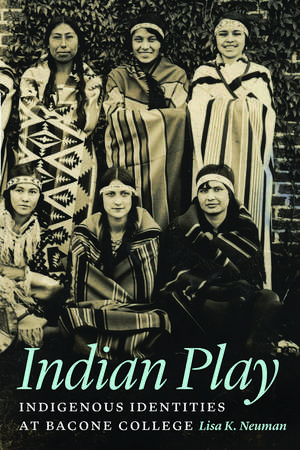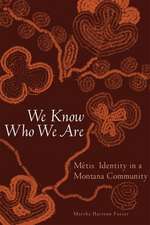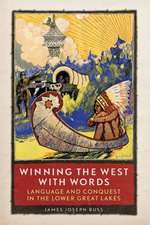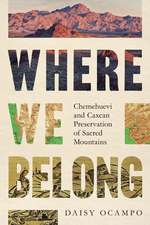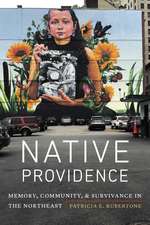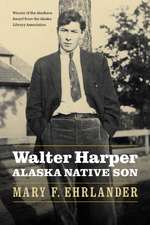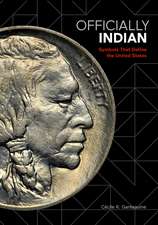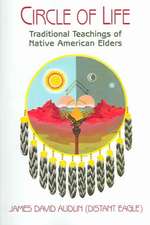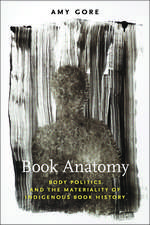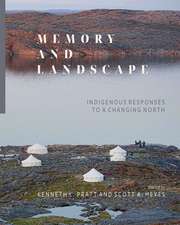Indian Play: Indigenous Identities at Bacone College
Autor Lisa K. Neumanen Limba Engleză Hardback – 2014
When Indian University—now Bacone College—opened its doors in Indian Territory (now Oklahoma) in 1880, it was a small Baptist institution designed to train young Native Americans to be teachers and Christian missionaries among their own people and to act as agents of cultural assimilation. From 1927 to 1957, however, Bacone College changed course and pursued a new strategy of emphasizing the Indian identities of its students and projecting often-romanticized images of Indianness to the non-Indian public in its fund-raising campaigns. Money was funneled back into the school as administrators hired Native American faculty who in turn created innovative curricular programs in music and the arts that encouraged their students to explore and develop their Native identities. Through their frequent use of humor and inventive wordplay to reference Indianness—“Indian play”—students articulated the (often contradictory) implications of being educated Indians in mid-twentieth-century America. In this supportive and creative culture, Bacone became an “Indian school,” rather than just another “school for Indians.”
In examining how and why this transformation occurred, Lisa K. Neuman situates the students’ Indian play within larger theoretical frameworks of cultural creativity, ideologies of authenticity, and counterhegemonic practices that are central to the fields of Native American and indigenous studies today.
In examining how and why this transformation occurred, Lisa K. Neuman situates the students’ Indian play within larger theoretical frameworks of cultural creativity, ideologies of authenticity, and counterhegemonic practices that are central to the fields of Native American and indigenous studies today.
Preț: 478.78 lei
Nou
Puncte Express: 718
Preț estimativ în valută:
91.61€ • 95.91$ • 75.80£
91.61€ • 95.91$ • 75.80£
Carte tipărită la comandă
Livrare economică 05-19 aprilie
Preluare comenzi: 021 569.72.76
Specificații
ISBN-13: 9780803240995
ISBN-10: 0803240996
Pagini: 400
Ilustrații: 25 photographs, 8 drawings, 4 paintings, 2 maps
Dimensiuni: 152 x 229 x 15 mm
Greutate: 0.73 kg
Editura: Nebraska
Colecția University of Nebraska Press
Locul publicării:United States
ISBN-10: 0803240996
Pagini: 400
Ilustrații: 25 photographs, 8 drawings, 4 paintings, 2 maps
Dimensiuni: 152 x 229 x 15 mm
Greutate: 0.73 kg
Editura: Nebraska
Colecția University of Nebraska Press
Locul publicării:United States
Notă biografică
Lisa K. Neuman is an associate professor of anthropology and Native American Studies at the University of Maine. Her articles have appeared in several journals, including Wicazo Sa Review, American Indian Quarterly, American Indian Culture and Research Journal, and Ethnology.
Cuprins
List of Illustrations
Preface
Acknowledgments
Introduction: American Indian Identities at School
1. Creating an Indian University: Bacone College, 1880-1927
2. Images of Indianness: Selling Bacone to the Public
3. “The Dream of an Indian Princess”: Indian Culture at Bacone, 1927-1941
4. Indian Education in a Changing America: Bacone College, 1941-1957
5. Marketing Culture: Bacone’s Indian Artists and Their Patrons
6. Painting Culture: Studying Indian Art at Bacone
7. Being Indian at School: Students at Bacone College, 1927-1957
8. The Meanings of Indianness: Tribal, Racial, and Religious Identities at Bacone
Conclusion: New Indigenous Identities
Notes
Bibliography
Index
Recenzii
"Indian Play illustrates the expressive and playful dimensions of Native American identities."—Sally McBeth, Western Historical Quarterly
"Indian Play deserves a place on the bookshelf of any serious American Indian educational scholar. Th e work is an excellent addition to the literature of both the boarding school movement and the creativity of American Indian resistance."—Sarah Shillinger, Great Plains Quarterly
"Indian Play provides a nuanced understanding of the history of Bacone College, particularly in regard to its marketing of Indianness, as well as an excellent introduction to mid-twentieth-century Oklahoma Indian art movements."—John W. Troutman, Journal of Southern History
"Indian Play provides a rich account of Bacone's unique place in the history of Indian education and a thoughtful analysis of the dynamic cultural processes involved."—Myriam Vuckovic, Journal of American History
“In the process of describing the experience of Indian students at a small Baptist college in Oklahoma, Lisa Neuman plays with our ideas about culture and identity and how Indians did the same as they negotiated the complicated dimensions of their Indianness. This deeply researched and thoughtful study, full of surprises and insights, is a wonderful addition to the literature and deserves a wide readership from scholars interested in Native American education.”—David Wallace Adams, author of Education for Extinction: American Indians and the Boarding School Experience, 1875–1928
